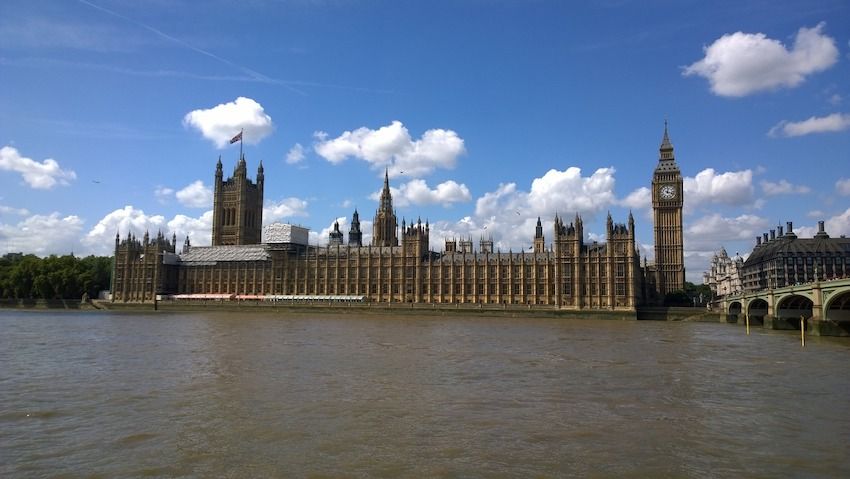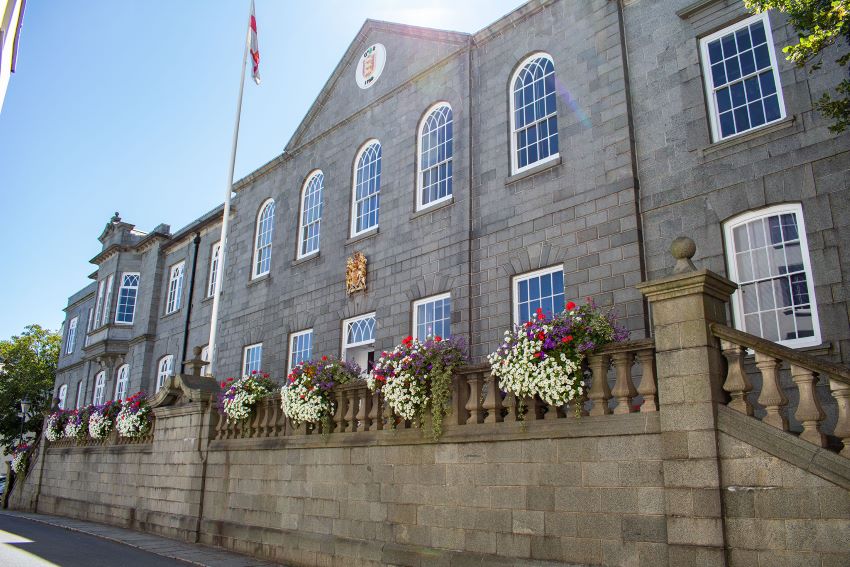


New procedures designed to ensure Guernsey has a say before the UK legislates for the island failed an early test.
The Nationality and Borders Act, which made updates to the nationality regime, became part of UK law in April 2022, having first begun the parliamentary process on 6 July 2021.
Only now will the States be asked to express its views on it.
“Those nationality provisions were not picked up in time to allow a Policy Letter to be debated in Guernsey while the legislation was being considered in the UK Parliament,” a spokesperson for Policy & Resources and Home Affairs said.

The provision to ensure the island is consulted by the UK came into effect in November 2019 and has already been triggered twice, both related to Brexit in January and November 2020.
The committees described the process as “new” and said procedures were still being developed to ensure that UK draft legislation regarding nationality could be considered by the States while that legislation was still going through the UK’s Houses of Parliament.
“These procedures are now in place. This is the first opportunity to bring the nationality provisions of NABA to the States, but it does allow the States to signify its views retrospectively regarding this legislation.”
The policy letter to be debated by the States also asks for its views on other pieces of UK legislation that have not yet been finalised that impact on nationality.
At this stage, deputies will be asked to limit their focus to the nationality aspects of the controversial Illegal Migration Bill and the British Nationality (Regularisation of Past Practice) Bill.
“When the States amended the Reform (Guernsey) Law in 2019, the purpose was to ensure that the States of Deliberation has an opportunity to have its say on matters which affect our residents,” said Policy & Resources president Deputy Peter Ferbrache.

Pictured: Deputy Peter Ferbrache.
“Our British citizenship is an important part of our connection to the Crown and it is appropriate that the States is given the opportunity to express its views on the UK’s proposed changes to nationality provisions before they take effect," said Deputy Ferbrache.
Home Affairs president Deputy Rob Prow said: “The Committee work closely with the UK Home Office on all nationality and immigration legislation, including this Act of Parliament and two UK Bills.
“While the States will only be debating the nationality provisions at this stage, the assembly will be asked to consider any extension of any immigration provisions of the Illegal Migration Bill at a later date, if it is proposed to extend any of them to Guernsey/the Bailiwick, and only after that Bill has been granted Royal Assent.”

Pictured: Deputy Rob Prow.
The provisions that apply directly to the Bailiwick are:
• The amendments introduce new registration provisions for children of British Overseas Territories citizens, who were unable to acquire that status under earlier legislation, either because women could not pass on citizenship at the time of their birth, or because their parents were not married.
• The Act introduces a provision for children to acquire their father’s citizenship where they were unable to do so previously because their mother was married to someone else.
• It creates a new time-limited route for the descendants of those born on the Chagos Islands, now known as the British Indian Ocean Territory, to apply to register as both British Overseas Territories citizens and British citizens.
• A new adult registration route allows the Secretary of State to grant citizenship where, in the Secretary of State’s opinion, a person failed to become a British citizen and/or British Overseas Territories citizen because of historical legislative unfairness; an act or omission by a public authority; or other exceptional circumstances relating to the person’s case.
• removes the requirement to have been in the United Kingdom at the start of the five (or three) year residential qualifying period for naturalisation in exceptional cases. This will mean that people will not be prevented from qualifying if there are good reasons why they could not have been in the United Kingdom at that time.
• allows the Secretary of State to strip a person of their nationality without warning when notice of the decision would be impractical or a threat to national security.
• amends the existing provisions for the registration of a stateless child as a citizen, adding a requirement that a child aged five to 17 will not qualify if they could reasonably acquire another nationality. This means that a child cannot benefit if their parents could, but chose not to, acquire their own nationality for their child.
• Sections 30-36 will apply directly: these have the effect of permanently disqualifying 'unlawful' entrants (who satisfy the criteria for removal under section 2 of the IMB) from becoming a British citizen and make consequential amendments to the British Nationality Act 1981.
• Will rectify a historical issue relating to the method of assessment applied to European Economic Area (EEA) nationals (meaning citizens of the EU, Iceland, Liechtenstein or Switzerland) and enables their children to now acquire British citizenship.
Comments
Comments on this story express the views of the commentator only, not Bailiwick Publishing. We are unable to guarantee the accuracy of any of those comments.